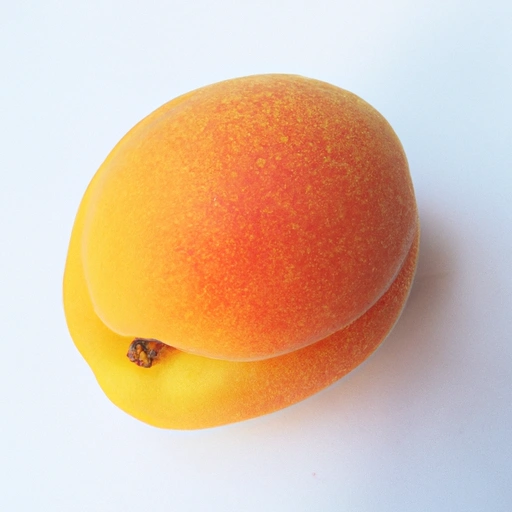Apricot
Description

The apricot is a small, golden-orange fruit with a velvety skin and flesh that is not too juicy but definitely smooth and sweet. This stone fruit is similar in size and shape to a small peach, with a single large seed encased within its hard pit. Apricots are known for their unique flavor, which can be described as a blend of peach and plum, with floral undertones and a hint of tartness that complements their overall sweetness.
Common uses
Apricots are commonly eaten fresh or dried and are also used in a variety of culinary preparations. They are often found in baked goods, jams, jellies, and preserves, as well as in savory dishes where their sweetness complements meat and poultry.
Nutritional value
Calories
A medium-sized apricot (35 grams) contains approximately 17 calories (71 kilojoules).
Protein
Each apricot provides about 0.5 grams of protein.
Fat
Apricots are very low in fat, with a medium-sized fruit containing less than 0.15 grams.
Carbohydrates
There are roughly 4 grams of carbohydrates in a medium apricot.
Vitamins
Apricots are an excellent source of vitamin A and vitamin C, and also provide some vitamins E and K.
Minerals
The fruit contains essential minerals such as potassium, copper, and manganese.
Health benefits
Apricots are packed with antioxidants, which help neutralize free radicals in the body. Their high fiber content promotes digestive health, while the vitamins and minerals support skin health, immune function, and overall well-being.
Potential risks
Excessive consumption of apricots, particularly in dried form, can lead to gastrointestinal distress due to their high fiber content. Apricot kernels (found within the pits) contain amygdalin, which can convert to cyanide in the body and should be avoided.
Common recipes
Apricots are featured in various recipes, including apricot glazes for meats, tarts, turnovers, compotes, and tagines. They are also popular in fruit salads and as a topping for cereals and desserts.
Cooking methods
Apricots can be enjoyed raw, baked, roasted, grilled, or stewed. Drying is a common method of preservation, which concentrates their natural sugars and extends their shelf life.
Pairing with other ingredients
Apricots pair well with spices such as cinnamon, nutmeg, and ginger, as well as with almonds, hazelnuts, and cheeses like goat cheese and brie. They also complement savory ingredients like chicken, lamb, and pork.
Summary
Apricots are a versatile and nutritious fruit with a rich history and a wide range of uses in both sweet and savory recipes. They provide numerous health benefits and are a delightful addition to many dishes, contributing vibrant color, sweetness, and a wealth of nutrients to the diet.